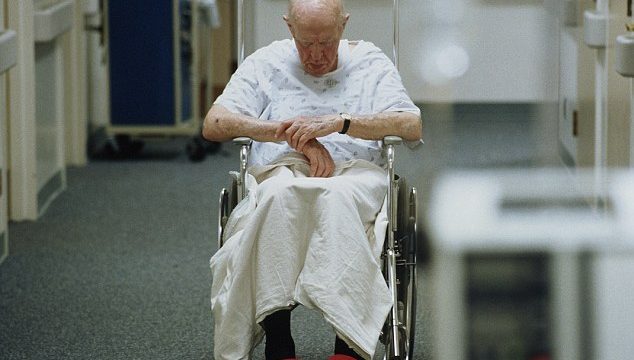In Great Britain 60,000 Patients Die Per Year Thanks To Government Cost Saving Measures

Earlier this week I wrote about a study which concluded that the government could make health care, and health insurance, cheaper for Americans by instituting price controls. I noted that this would give us something akin to the “death panels” Sarah Palin talked about, and was ridiculed for bringing up.
But what other term but “death panels” could possibly apply to Great Britain removing life-saving treatments from patients, and allowing them to die, without informing anyone that the treatments have been halted? All in an effort to save the government health care system money?
Up to 60,000 patients die on the Liverpool Care Pathway each year without giving their consent, shocking figures revealed yesterday.
A third of families are also kept in the dark when doctors withdraw lifesaving treatment from loved ones.
Despite the revelations, Jeremy Hunt last night claimed the pathway was a ‘fantastic step forward’. …
The pathway involves withdrawal of lifesaving treatment, with the sick sedated and usually denied nutrition and fluids. Death typically takes place within 29 hours.
The 60,000 figure comes from a joint study by the Marie Curie Palliative Care Institute in Liverpool and the Royal College of Physicians.
It found many patients were not consulted despite being conscious when doctors decided on their care.
Records from 178 hospitals also show that thousands of people on the pathway are left to die in pain because nurses do not do enough to keep them comfortable while drugs are administered.
An estimated 130,000 patients are put on the pathway each year.
Concerns have been raised that clinical judgments are being skewed by incentives for hospitals to use the pathway.
Government incentives for hospitals that put patients on the fast-track? That sounds suspiciously like bribing hospitals to put the patient’s interests in the back seat.
But then, that’s what government health care systems do. When health care is a collective responsibility, instead of an individual responsibility, the interests of the collective trump the interests of the individual. It may sound great for taxpayers, and those paying high costs for health insurance/health care, to save money this way. Until, that is, you’re the one in the hospital bed.







